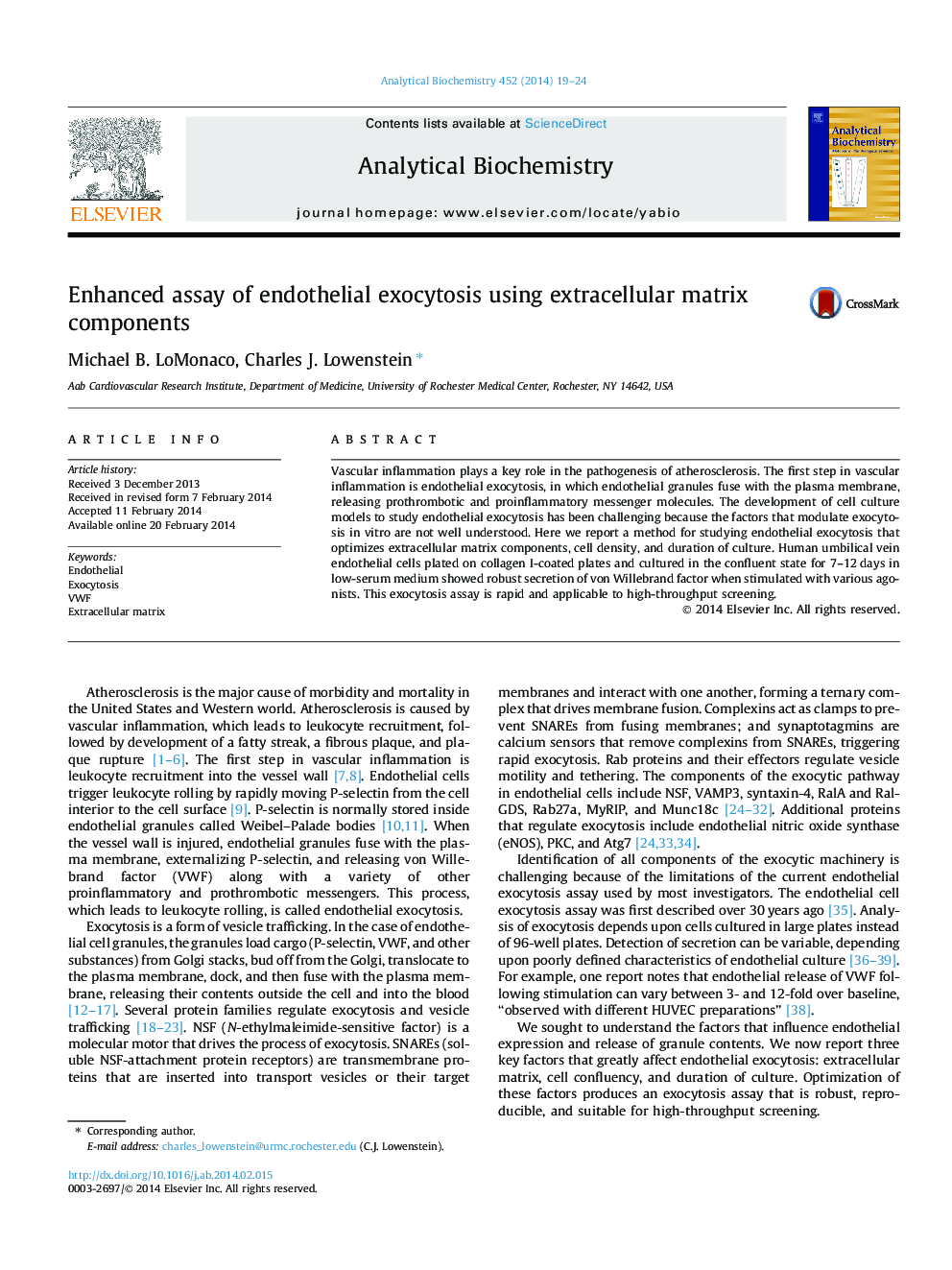| Article ID | Journal | Published Year | Pages | File Type |
|---|---|---|---|---|
| 1173636 | Analytical Biochemistry | 2014 | 6 Pages |
Vascular inflammation plays a key role in the pathogenesis of atherosclerosis. The first step in vascular inflammation is endothelial exocytosis, in which endothelial granules fuse with the plasma membrane, releasing prothrombotic and proinflammatory messenger molecules. The development of cell culture models to study endothelial exocytosis has been challenging because the factors that modulate exocytosis in vitro are not well understood. Here we report a method for studying endothelial exocytosis that optimizes extracellular matrix components, cell density, and duration of culture. Human umbilical vein endothelial cells plated on collagen I-coated plates and cultured in the confluent state for 7–12 days in low-serum medium showed robust secretion of von Willebrand factor when stimulated with various agonists. This exocytosis assay is rapid and applicable to high-throughput screening.
